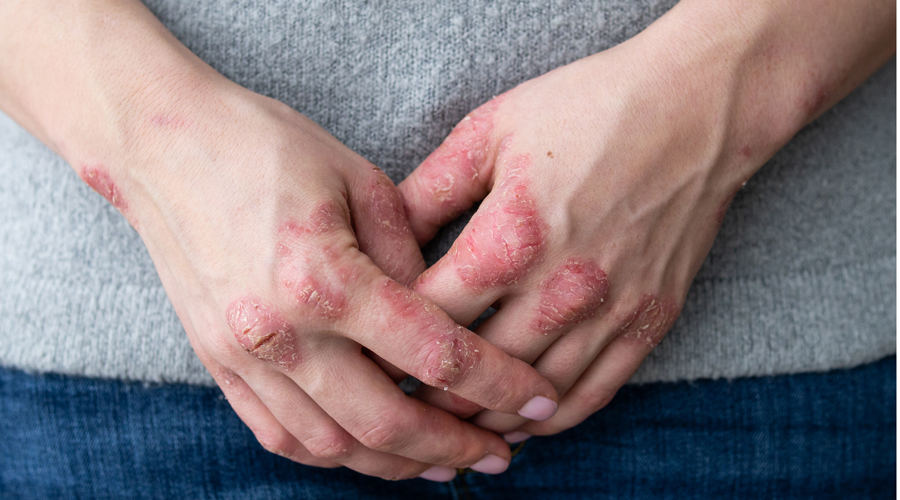
Bad eating habits are a growing problem across the world. None of us are strangers to the fact that following a bad diet can lead to a host of different health issues, and the resular western diet which is high in fats and sugars is no exception. But, even considering the multiple adversities such dietary habits may cause, a majority of us would not have expected that it could even lead to skin related issues. Yes, as surprising as it may sound eating foods that are rich in sugars and fats can not only cause weight gain, but can also cause skin conditions such as psoriasis. So let us now analyse this a little more detail to get a better understanding.
Previously, experts from all around the world were under the impression that obesity, a consequence of a bad diet was a major contributor towards psoriasis. But a recent study by a team of researchers from UC Davis has linked a high fat, high sugar diet directly to psoriasis rather than obesity itself. They were able to confirm this, as their studies showed psoriasis development in subjects even before significant weight gain when they were subjected to a high fat, high sugar western diet.
Their study involved a mouse model, wherein the mice were given different diets. The first set was provided with a high fat, high sugar diet as mentioned above, the second was given a controlled diet and the third were made to consume a regular high fat diet. They observed that the chosen mice experienced significantly increased ear swelling and visible dermatitis compared to those that were fed a controlled diet and those on high fat diet alone.
The study also detailed the mechanisms that were involved in the inflammation process caused by such unhealthy western diets. It found that bile acids produced in the liver from cholesterol was a pivotal signaling molecule in the regulation of skin immunity. These acids that get metabolised in the intestine by gut microbiota, are crucial for lipid absorption and cholesterol balance in the blood.
Furthermore, the study revealed that skin inflammation reduced by the action of cholestyramine, a drug that binds to bile acids in the intestine to reduce cholesterol levels. After the binding process, these drugs naturally flush out the cholesterol during excretion which inturn reduces inflammation.
This study has shown promising results. A few details such as the mechanism behind diet induced inflammation, and the interactions between metabolism, microbes and immunity are yet to be uncovered, but the scientists strongly believe that they are on the right path and will understand more about these processes with further studies in the years to come.
